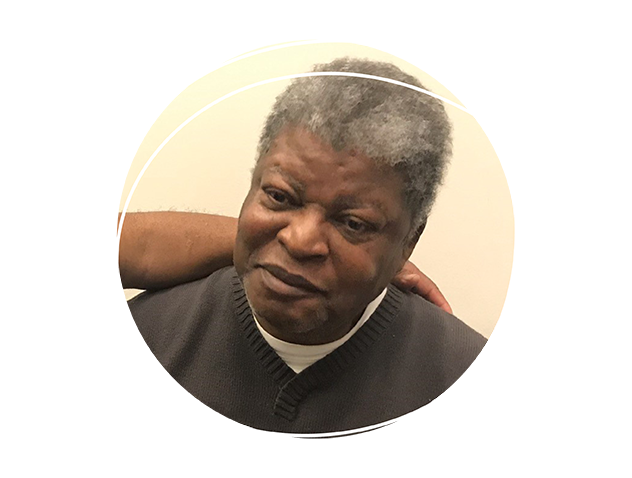
Ama's father
Faces of dementia: Ama's story
Ama is a caregiver for her father, who is living with dementia following a few strokes. Here, she talks about the importance of family and health-system support, the need for advocacy, and other aspects of her family’s experience so far. She lives in Alberta.
"My dad was a hard worker his entire life. He was an investment banker for many years, and he retired from that and took up a whole new career, where he started doing carpentry, and then scaffolding. He also used to work for a group home and take care of kids with special needs. And he also used to work in agriculture. He’s got a few degrees. He’d always worked, and he’d always been a productive person.
Over the years, we noticed a decline in his health in general, and not being as productive. My mom started noticing that he wasn’t paying bills on time, or he was putting additional money on bills because he didn’t want anything to be past due.
He started burning things on the stove. I remember there was one time he pulled a bag from the fridge and put it in the microwave, thinking it was food, but it was actually his insulin.
I think it was when his main caregiver, my mom, went out of town two years ago to take care of her own mom for a few months that we—me and my sisters—saw more of a big difference and that he really wasn’t okay on his own. I went to the house and I couldn’t believe how run down it was. It was a real mess, and he just couldn’t see anything wrong. He’d lost sight of what you need to do to take care of yourself.
So that’s when we arranged all these services to help, especially when my mom is away taking care of her mom. Now, we have home care come three times a day, because if nobody’s there, he won’t remember to take his medication, he may not eat, and he may overeat (which is harmful since he is diabetic). Home care also checks his blood pressure and his blood sugar. And we’ve hired someone to come in and clean once a week and prepare meals for him.
It’s still weird for me—it’s hard for him to grasp an understanding of what he’s sick with, and what he needs to do to take care of his health, but then he can remember, “Oh, it’s end of March, time to do my taxes!” And he will get his taxes all organized and ready. So he can function very well in certain areas, but in other areas he’s just not on top of it.
He got his licence taken away last year after they did a CT scan or MRI. He was becoming more forgetful and slow to react, so it wasn’t safe for him [to drive]. This was a big blow because driving was kind of the last part of his independence. He really loved to drive. It was a way for him to get out of the house. Now he’s home all the time and doesn’t have much motivation to get out and do things. It’s more us, his kids, and my mom, taking the reins and making sure he goes to appointments, and making sure he’s active.
Support is a big thing. I don’t know how people do this without help! My dad is very blessed—he has kids who all live in the same city. I’m glad I have my sisters to help. I couldn’t even imagine trying to do this by myself.
"He can remember, “Oh, it’s end of March, time to do my taxes!” And he will get his taxes all organized and ready. So he can function very well in certain areas, but in other areas he’s just not on top of it."
It’s also important to advocate for your family member. You have to have a voice and speak up! Home care is helpful but it’s not perfect; you only qualify for so much, so if you want more of one kind of service, they have to take something away. In some cases, we’ve requested things done by his doctor and they haven’t gotten back to us for days or weeks.
It’s frustrating, it’s time consuming, but that’s the reality: If you’re not happy with things and you need a change, you need to speak up. We are in touch with his case manager quite often, and his home care agency too, calling doctors and nurses, and following up if we don’t hear back.
I’d also recommend keeping notes—logs of what’s wrong, who the physicians are, where the person goes for care. Having all that stuff organized is helpful because it can get overwhelming. My sister is very organized in that aspect, she has a flowchart of my dad’s entire care plan.
If asked what I’d want other people to know about our dementia experience? Well, it’s not easy. I guess I would want people to cherish the time that they have now. Health is truly wealth. But also know that some things are out of your control. And if you don’t have family to help you, a lot of work likely goes into figuring out where you can get help, and what services are available to you.”
Photo: Courtesy of Ama and family.
